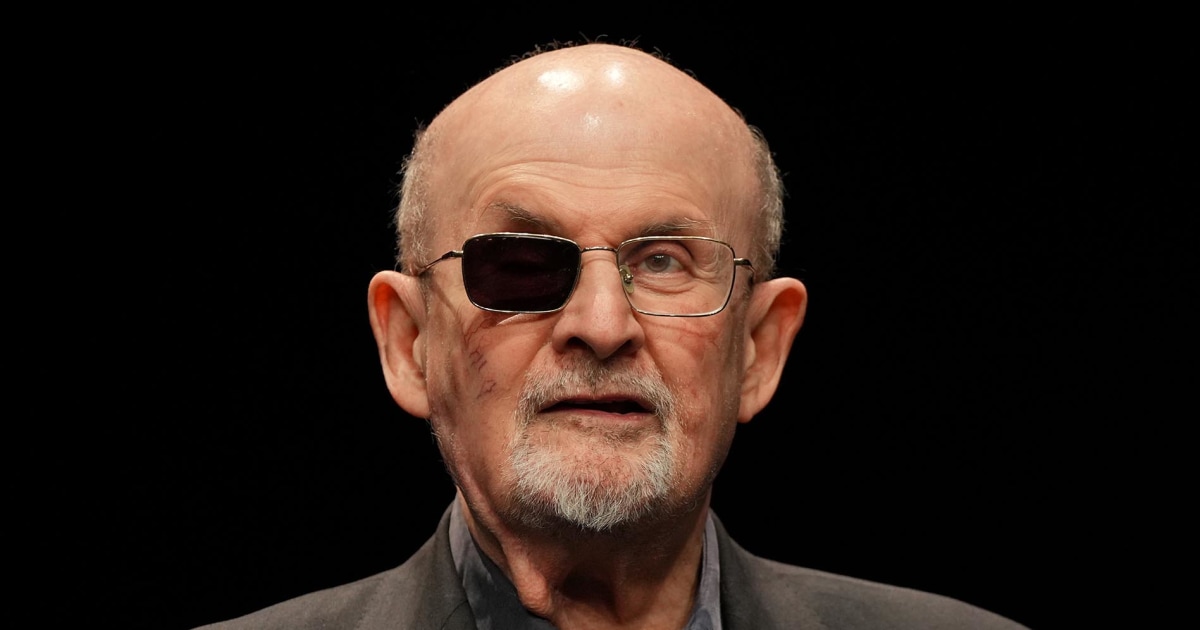Salman Rushdie’s Harrowing Account: A Brush with Death During Stabbing Attack
In a world where freedom of expression is often under siege, few voices resonate as powerfully as that of Salman Rushdie. The acclaimed author, known for his groundbreaking works that challenge cultural norms and political landscapes, recently shared a chilling testimony regarding his experience during a stabbing attack. This harrowing account not only sheds light on the terrifying moments leading up to and following the attack but also highlights the resilience of the human spirit in the face of violence.
The Attack: A Life-Altering Moment
On August 12, 2022, Salman Rushdie was scheduled to give a lecture at the Chautauqua Institution in New York when he became the target of a brutal attack. A man rushed the stage and stabbed him multiple times, striking at the heart of an artist whose work has long been a beacon for free thought. In the immediate aftermath, Rushdie recounted the fear that coursed through him; he feared for his life, grappling with the reality of his mortality in those critical moments.
“I thought I was going to die,” Rushdie recalled. “I was aware of the darkness closing in, and I fought against it.” His vivid description of the attack not only encapsulates the physical pain he endured but also the emotional turmoil that accompanies such a life-threatening experience. The author’s bravery in sharing these moments is a testament to his enduring spirit and commitment to his craft.
The Psychological Impact of Violence
Experiencing violence can leave profound psychological scars, and Salman Rushdie’s story is no exception. The aftermath of the attack forced Rushdie to confront the trauma he endured. In interviews following the incident, he spoke candidly about the psychological impact of such violence, expressing how it has reshaped his perspective on life, art, and freedom. The trauma of the attack serves as a reminder of the continual threats faced by those who dare to speak out.
- Fear and Anxiety: The immediate response to violence often includes feelings of fear and heightened anxiety. Rushdie admitted that he experienced panic attacks in the weeks following the assault.
- Isolation: Survivors of violent attacks may feel isolated, believing that others cannot understand their experiences. Rushdie emphasized the importance of community and support during this recovery phase.
- Resilience: Despite the trauma, many survivors, including Rushdie, find strength in resilience, using their experiences to advocate for change and inspire others.
The Broader Implications of Rushdie’s Attack
Salman Rushdie’s stabbing attack has broader implications that extend beyond the individual. It raises critical questions about the safety of artists and writers worldwide. Many individuals have faced similar threats due to their creative expressions, and the attack serves as a stark reminder that the battle for freedom of speech remains precarious.
In the context of global politics, Rushdie’s experience is emblematic of the challenges faced by those who challenge authoritarian regimes and societal norms. As governments and organizations clamp down on dissenting voices, the risk of violence against writers, journalists, and artists grows alarmingly. Rushdie’s story not only highlights the need for solidarity among creatives but also calls upon society to stand against oppression in all its forms.
Recovery and Reflection
In the months following the attack, Salman Rushdie underwent multiple surgeries and an extensive rehabilitation process. As he began to regain his strength, he reflected on his journey not only as an author but also as a survivor. Rushdie’s resilience has been inspirational to many, showcasing the importance of perseverance in the face of adversity.
Rushdie’s reflections on his attack have led him to a renewed commitment to his work. He has stated that he will not be silenced by fear, and his literary pursuits will continue to challenge societal norms. In his own words, “A writer’s job is to provoke thought, to ignite discussion, and to navigate the complexities of human experience. I will not let fear dictate my voice.”
The Role of Community and Support
The aftermath of Rushdie’s attack underscores the crucial role of community in healing from violence. Support from friends, family, and fellow artists can provide a vital lifeline for survivors. In Rushdie’s case, fellow writers and advocates for free speech rallied around him, stressing the importance of solidarity in the arts. This network of support is essential for fostering resilience and encouraging those affected by violence to reclaim their narratives.
Conclusion: A Testament to the Human Spirit
Salman Rushdie’s harrowing account of his stabbing attack is more than just a story of survival; it is a powerful testament to the resilience of the human spirit in the face of unimaginable adversity. His experience resonates with countless others who have faced violence for their beliefs and expressions. As Rushdie continues to share his story, he not only raises awareness about the threats faced by artists but also reinforces the idea that freedom of expression is a fundamental human right worth defending.
In a world that often feels oppressive, Rushdie’s unwavering commitment to his craft serves as a reminder that creativity can flourish even in the darkest of times. Through his words, he inspires others to embrace their stories and stand firm against violence, reinforcing the notion that art and expression can be powerful tools for change. The journey of recovery is ongoing, but with community support and an unyielding spirit, the fight for freedom of expression continues, echoing the resilience that defines the human experience.
See more Update My News



